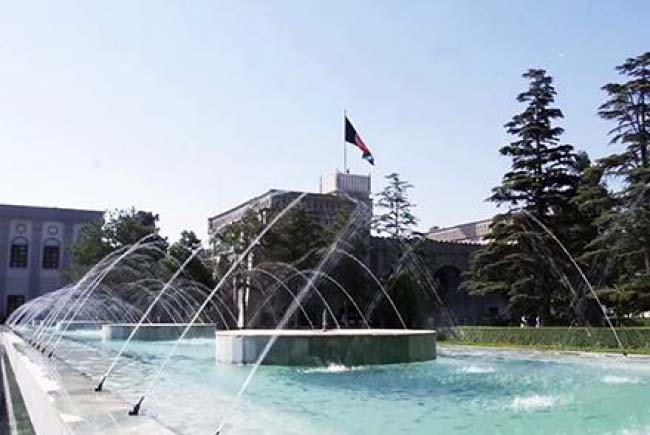Afghanistan’s fragile political system is left at the mercy of countless challenges. The political issue in the government’s machinery which has widened the gap among officials is debated hotly in recent months. The establishment of the National Unity Government, after 2014 controversial election, was said to strengthen national unity despite being contrary to the Constitution. Then US Secretary of State John Kerry helped negotiate the agreement when controversy over the results of the 2014 presidential elections threatened to derail the process. Both presidential candidates, Ashraf Ghani and Abdullah Abdullah, claimed victory.
The September 2014 deal led to the creation of a Chief Executive Officer position, which was given to Abdullah, while Ghani became president. The CEO post was supposed to be turned into the role of prime minister within two years by a constitutional Loya Jirga or Grand Assembly. That never happened and differences in the way supporters of Abdullah and Ghani interpreted the agreement led to infighting.
Afghan nation welcomed this agreement between Ashraf Ghani and Abdullah Abdullah since it brokered the election’s stalemate and people hoped to exercise their rights and liberty in civil society which would be void of violence and militancy.
Celebrating democracy without a sense of fear at Election Day, Afghans hoped for a violence-free society with a big smile on their lips as their photos were posted on Facebook and Twitter which provoked a strong sense of confidence in the viewers. The eyes of women also sparkled with happiness standing on queue to cast their votes. I do remember old women, in villages, walked for long hours with heartfelt sincerity to vote. So, men and women played their role and fulfilled their responsibility in this regard for the betterment of Afghanistan.
Then, it was the heads of the National Unity Government (NUG) to protect their rights and liberty under democratic administration as they promised during their presidential campaigns. Their mouth-watering agendas made one dream of a utopian society where political and economic constraints had no room. At the beginning, President Ghani rushed to hospitals and police checkpoints impetuously to make sure that the doctors and police are fulfilling their duties properly. As a result, some doctors and police officers were fired from their jobs or warned for not being present on their duties. This news went from ear to ear and people praised him and also themselves for voting to the right person. The air was filled with great satisfaction.
However, this satisfaction did not last long as the country was pushed to a myriad of challenges. First, warring parties, mainly the Taliban, intensified their attacks against the NUG and took heavy toll from both Afghan civilians and soldiers. The terrorist acts, which undermined democracy, filled the nation with chagrin and disappointment. The ballot was no more believed to gain upper hand over bullet. Meanwhile, the NATO’s combat mission ended without gaining the desired result. Worst of all, the Taliban held out to come to negotiating table.
Secondly, the graph of unemployment increased and a large number of people took refuge to foreign countries. In other words, the escalated insurgency on one hand, and the withdrawal of NOGs from Afghanistan on the other hand, resulted in economic stagnation and narrowed the job opportunities. The exodus, mainly the brain-drain, was a great tragedy for the country. The two aforementioned factors also heightened the crime rate such as robbery, extortion, death, smuggling, etc.
Thirdly, the officials’ rhetoric against one another and disagreement about the introduction of ministers and appointing some individuals to high governmental posts redirected the attention and energy of officials from more significant issues to minor ones. Subsequently, the rift between state and nation widened and people lost their trust in the NUG.
Recently, the International Crisis Group (ICG) said that the future of Afghanistan’s unity government is “shaky.” The Brussels based NGO says Afghanistan’s New Unity Government is beset with internal disagreements and discord, while facing a revived insurgency. The group blames the discord on what it called the “vagueness of the US power-sharing agreement that frames the government”. It says that has led to “widely diverging interpretations” of its powers and authority.
“Though the Afghan National Police is in urgent need of reform, the unity government’s leadership has yet to tackle the corruption, nepotism and factionalism within it,” the International Crisis Group noted. Senior NATO officials have also often cited lack of good leadership as one of the major reasons Afghan security forces have lost ground to the Taliban.
All the aforementioned challenges: political disagreement among the officials, escalated militancy and lack of job opportunities linger up to now. The heads of the NUG are supposed to fulfill their promises made during their presidential campaigns. To mitigate the current challenges, burying the political difference is the first and foremost issue. When there is close amity among the officials, they will be able to focus their attention on more significant issues such as combating terrorism and making job opportunities. Of course, as soon as people’s rights are protected and they are provided jobs and life necessities, the gap will be narrowed and the graph of satisfaction will rise automatically.
Home » Opinion » The Gap between State and Nation
The Gap between State and Nation
| Hujjatullah Zia

